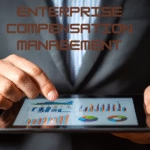Disclaimer: This article is for informational purposes only and does not constitute financial or legal advice. Fees and structures can vary widely. Always consult with a qualified business broker, attorney, and accountant for guidance specific to your situation.
Introduction
Deciding to sell your business is a monumental moment, often representing the culmination of a lifetime of hard work. Navigating the subsequent maze of valuations, marketing, negotiations, and due diligence is a complex, high-stakes process. This leads most sellers to a critical question: “How much do brokers charge to sell a business?”
Understanding the cost of hiring a business broker is essential for budgeting and evaluating your return on investment. This comprehensive guide for 2025 breaks down every aspect of business broker fees, from standard commission structures to hidden costs and expert negotiation strategies, including new insights into modern, fixed-fee models.
Why Hire a Business Broker? The Value Behind the Fee
A business broker is more than just a middleman; they are a project manager for your exit. Their fee buys you a suite of specialized services that significantly increase the likelihood of a successful, profitable sale.
- Accurate Business Valuation: Brokers use proven methodologies (comparable sales, income multiples, asset-based approaches) to determine a realistic, defensible asking price. Overpricing scares buyers away; underpricing leaves money on the table.
- Extensive & Vetted Buyer Pool: Top brokers have deep networks of pre-qualified buyers, including silent investors, competitors, and private equity groups. They discreetly market your business to this pool, far beyond just a public listing.
- Masterful Negotiation: Brokers act as a buffer, negotiating not just on price, but on terms that are equally crucial—seller financing, non-compete clauses, transition training, and allocation of assets. They handle emotionally charged discussions with objectivity.
- Confidentiality Management: A leaked sale can destabilize a business, alarming employees, customers, and suppliers. Brokers have systems to protect your anonymity while screening serious buyers.
- Administrative Expertise: They manage the overwhelming paperwork, oversee the due diligence process, and ensure the transaction adheres to all legal and financial regulations, guiding you to a smooth closing.
Standard Business Broker Commission Structures

Brokers typically use one of several primary fee models. The most common by far is the success-based commission. However, a new model of fixed-fee brokerage is emerging as a disruptive alternative.
1. Success Fee (Commission-Based)
This is the industry standard, particularly for main street and lower middle-market businesses. The broker only gets paid if and when the sale closes. This aligns their interests directly with yours. The percentage is typically on a sliding scale.
- Small Businesses (Sale Price: $100K – $1M):10% – 12% commission.
- *Example: On a $500,000 sale, the broker fee would be approximately $50,000 – $60,000.*
- Mid-Market Businesses (Sale Price: $1M – $10M): 6% – 10% commission. Often, a tiered structure is used (e.g., 10% on the first $1M, 8% on the next $1M).
- Large Transactions (Sale Price: $10M+): 2% – 5% commission. These fees are highly negotiable and often use a model like the Double Lehman Formula.
2. The Emerging Fixed-Fee Model
In contrast to traditional percentage-based commissions, some modern brokerages now offer a fixed-fee structure. As highlighted in the resource from Baton Market, this model charges a single, upfront fee for a comprehensive suite of services, regardless of the final sale price of your business. This can be a game-changer for owners of high-value businesses, as it can lead to massive savings compared to a 5-8% commission. For example, a flat fee of $40,000 on a $2 million sale is a 2% cost, significantly below the traditional rate.
3. Retainer Fee
Some brokers, especially those handling larger or more complex sales, require a monthly or upfront retainer. This fee covers their initial work—business valuation, creating marketing materials, and strategic planning. A key point: A retainer is usually non-refundable but is often credited against the final success fee upon closing.
4. Upfront Marketing or Listing Fees
Be cautious with this model. Some brokerage firms require an upfront fee ($2,000 – $10,000+) to cover the cost of creating professional listings, brochures, and advertising campaigns. While not inherently bad, it’s crucial to understand what specific, tangible marketing activities this fee covers and to ensure it is not just a profit center for the broker.
Detailed 2025 Commission Rate Breakdown by Business Size
| Business Size (By Sale Price) | Typical Commission Rate | Example Fee on a $2M Sale | Notes |
|---|---|---|---|
| Small Business (< $1M) | 10% – 12% | N/A | Highest percentage due to fixed costs of a sale. |
| Lower Middle-Market ($1M – $5M) | 8% – 10% | $160,000 – $200,000 | Often uses a tiered scale. Fixed fees can offer savings here. |
| Middle-Market ($5M – $50M) | 4% – 8% | (on $10M sale) $400k – $800k | Highly negotiated; may include a retainer. Fixed fees become very attractive. |
| Large Corporations ($50M+) | 1% – 4% | (on $100M sale) $1M – $4M | Handled by M&A advisors; fee structures are complex. |
Key Factors That Influence What You’ll Pay
The final commission rate is not set in stone. Several variables can impact the final percentage:
- Business Profitability & Cash Flow: A highly profitable business with strong SDE (Seller’s Discretionary Earnings) or EBITDA is easier to sell and can command a lower commission rate or be a prime candidate for a fixed fee.
- Industry: A common franchise restaurant is easier to value and market than a highly specialized tech startup or manufacturing firm, which may require a broker with niche expertise who charges a premium.
- Deal Complexity: Multiple owners, real estate holdings, international operations, or regulatory hurdles (e.g., in healthcare or finance) mean more work for the broker, potentially justifying a higher fee or retainer.
- Broker Experience & Track Record: A top-performing Certified Business Intermediary (CBI) with a proven history of closing deals quickly and at high multiples can justify their premium rates.
- Geography: Fees can vary slightly based on regional market competition among brokers.
Beyond Commission: Other “Hidden” Costs of Selling a Business
The broker’s commission is the largest fee, but it’s not the only cost. A savvy seller budgets for these additional expenses:
- Legal Fees: ($5,000 – $20,000+) Hiring an attorney to draft or review the sales agreement, asset purchase agreement, and other legal documents is non-negotiable.
- Accounting Fees: ($2,000 – $10,000+) Your accountant will be crucial for preparing audited financial statements, tax clearance certificates, and advising on the tax implications of the sale structure.
- Due Diligence Preparation: You may need to pay for third-party audits, environmental assessments, or other reports requested by the buyer.
- Closing & Escrow Fees: Typically 1% – 2% of the sale price, paid to the escrow company or attorney for handling the closing transaction.
How to Negotiate Broker Fees: Getting the Best Value
1. Get Multiple Proposals: Interview at least 3-4 brokers. Compare their marketing plans, experience, and fees. This gives you leverage and exposes you to different models (commission vs. fixed fee).
2. Propose a Tiered Success Fee: Offer a lower base commission (e.g., 8%) but a higher bonus (e.g., 15%) on any amount received above your target sale price. This fiercely aligns their incentive with yours.
3. Scrutinize Upfront Fees: If a broker demands a large retainer or marketing fee, ask for a detailed, itemized list of what it covers. Negotiate to have 100% of it credited to the final commission.
4. Assess the Entire Package: Don’t just choose the cheapest broker. Choose the one with the strongest marketing strategy, the most relevant experience, and the best references. A great broker who charges a fair fixed fee or a 10% commission will make you more money than a mediocre one who charges 8%.
5. Ask About Fixed-Fee Options: Inquire if the brokerage offers a fixed-fee alternative. For businesses expected to sell for over $1 million, this can be the most financially prudent path.
FAQs: How Much Do Brokers Charge to Sell a Business?
Q: Are broker fees tax-deductible?
A: Yes, in most cases, broker commissions are considered a legitimate cost of sale. They reduce your capital gains tax liability. Always confirm with your CPA.
Q: Who pays the broker fee—the buyer or the seller?
A: Almost universally, the seller pays the commission to the listing broker. If another broker brings the buyer, the commission is typically split between the two.
Q: Is a fixed fee better than a commission?
A: It depends on your business’s value. For high-value businesses, a fixed fee can save you tens or even hundreds of thousands of dollars. It also perfectly aligns the broker’s incentive with your goal to close the deal, not just to close it at a higher price. For smaller businesses, a commission may still be the standard.
Q: What questions should I ask a broker about their fees?
A: “Is your commission negotiable?” “Do you offer a fixed-fee option?” “Is there any upfront fee, and is it creditable?” “Does your fee cover everything, or are there extra charges for marketing?” “What is your specific marketing plan for my business?”
Final Verdict: Is a Business Broker Worth the Cost?
So, how much do brokers charge to sell a business? While fees typically range from 8-12% for small businesses to 2-5% for large ones, the emergence of fixed-fee models has given sellers a powerful new option to control costs.
For the vast majority of business owners, hiring a professional is a resounding yes. A skilled broker doesn’t just earn their fee; they save you money, time, and stress. They secure a higher sale price, navigate deal-killing pitfalls, manage complex negotiations, and ultimately provide a return that far exceeds their cost. They don’t just sell your business; they protect your legacy and ensure you get the best possible outcome for your life’s work. Whether you choose a traditional commission model or a modern fixed fee, the key is selecting a reputable, experienced partner for your exit.


